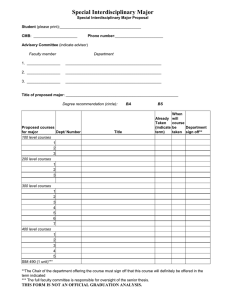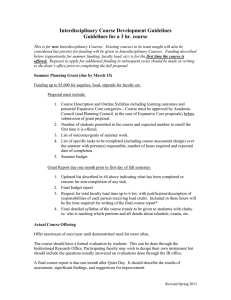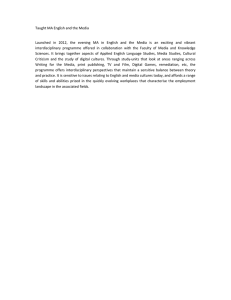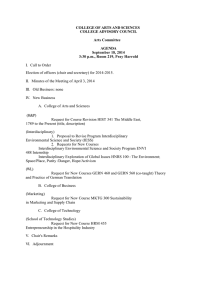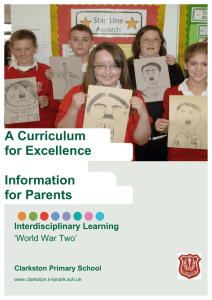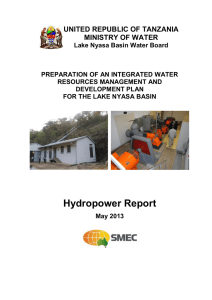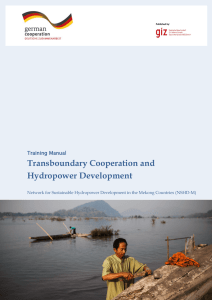S Advancing Good Practices in Building Interdisciplinary: Moving towards User-oriented Science (3101)
advertisement
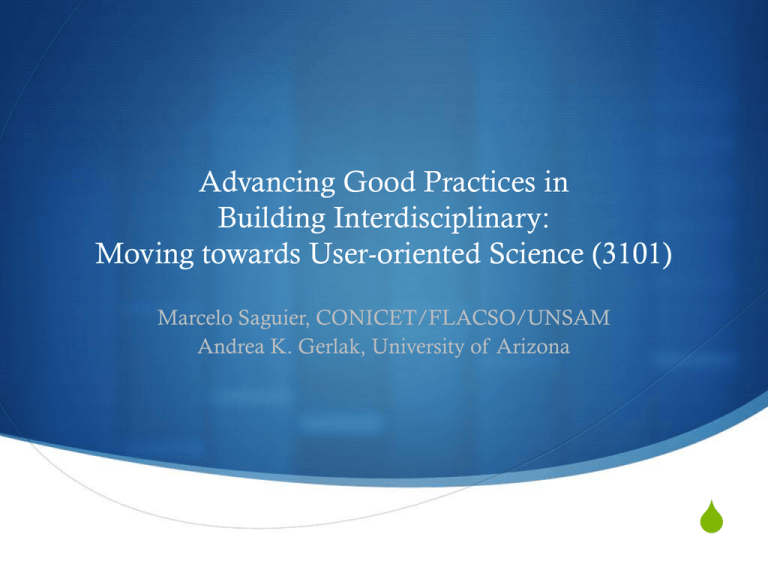
Advancing Good Practices in Building Interdisciplinary: Moving towards User-oriented Science (3101) Marcelo Saguier, CONICET/FLACSO/UNSAM Andrea K. Gerlak, University of Arizona S Project Goal To reflect on and improve the current practices of knowledge generation, mobilization and use with respect to the social and environmental impacts of hydropower development and water-energy futures in South America Uruguay River Core of agricultural and industrial production of the Southern Cone History of cooperation and conflict Significant hydropower development Growing social resistance Garabí-Panambi hydroelectric complex Project Objectives S To build an interdisciplinary socio-scientific network between natural scientists, social scientists, policy-makers and social actors involved in water politics as governance mechanisms and practices S To identify and assess ways of articulating interactions between public officials, natural sciences experts, social scientist and social actors as governance processes to generate knowledge S To provide practical guidance and good practices toward improving the generation and mobilization of knowledge on interdisciplinary problem-and-solution-oriented projects Phase 1: Hydroenergy and Climate Change Workshop Buenos Aires, July 2014 Academic researchers, public water officials, and representatives of NGOs To identify and frame global change research questions in the context of hydropower development and water-energy futures in South America Products associated with Phase 1 Phase 2: Crafting an Interdisciplinary Agenda for Action in the Uruguay River Basin S To develop an interdisciplinary agenda for action can help identify opportunities for cooperative management of the Uruguay River Basin S Work collaboratively in small teams to articulate the scientific and policy issues around three key “priority” dimensions S land use & related infrastructure S biodiversity & ecosystem functions S transboundary basin governance Process of Science Integration Workshop Planning Itaipu, Brazil May 2016 Collaboration with Centro Internacional de Hidroinformática CIH/UNESCO Reflections on Process S Partner selection process involved extensive work that combined group activities and individual interviews and meetings S Importance of understanding the different partners' incentives to engage in the project to ensure sustained commitment S Existing networks and institutional infrastructure facilitates the creation of a viable project team S Ongoing challenges with communication patterns, behaviors and geographical distances
